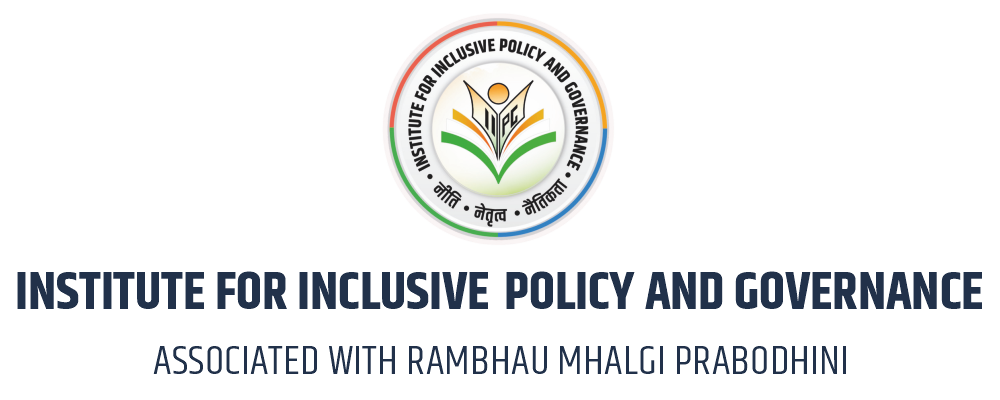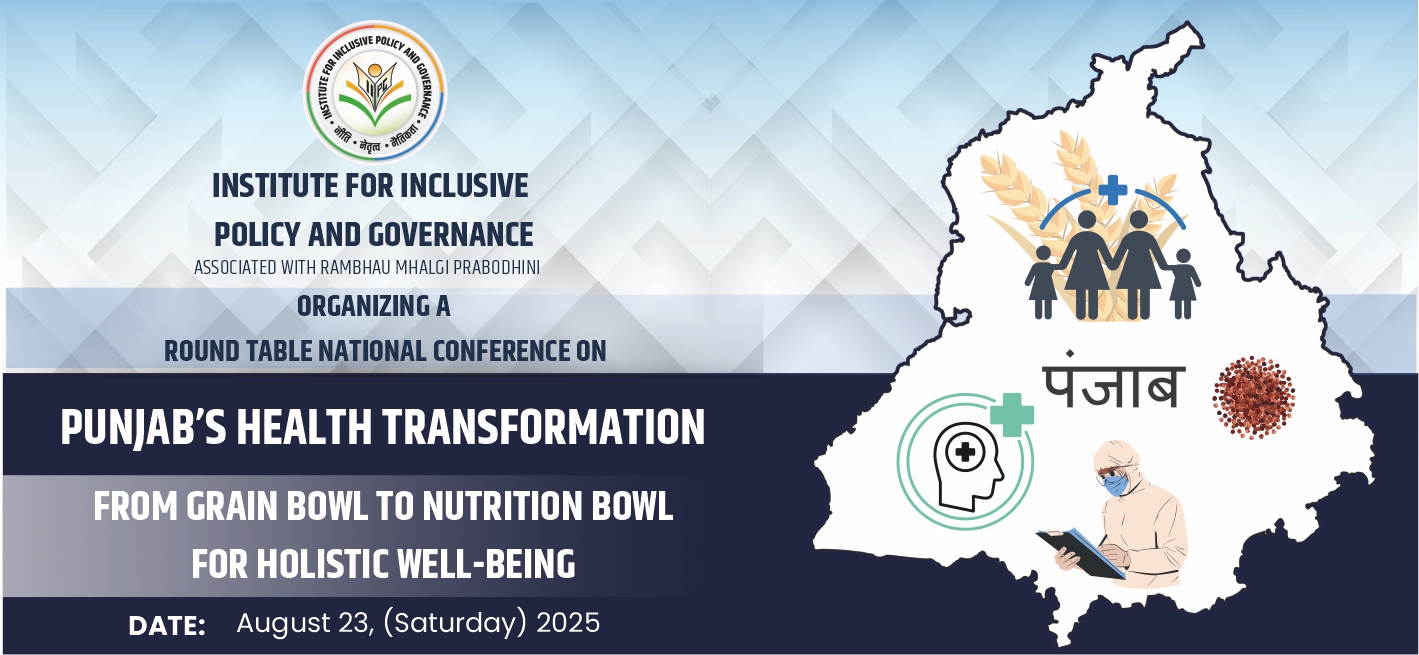RMP was initiated in 1982 as a unique leadership development academy with an aim to nurture, impart training and build capacities of elected representatives, social workers, as well as people running institutions, organizations, and start-ups. RMP is one of the unique institutions in the entire Indian subcontinent having a special consultative status provided by the United Nations Economic and Social Council.

ABOUT
Rambhau Mhalgi Prabodhini (RMP)
Institute for Inclusive Policy and Governance (IIPG)
The Institute for Inclusive Policy and Governance (IIPG), in association with Rambhau Mhalgi Prabodhini, is a public-policy think tank. Serving as a platform for collaboration, it brings together local communities, academicians, scientists, social activists, policymakers and policy executors to bridge the gap between research and real-world implementation. Through strategic dialogue, inclusive policymaking, and multi-stakeholder engagement, IIPG works to strengthen good governance and sustainable development in several states of northern India.
With a strong emphasis on leadership development, IIPG provides training in administrative, political, and social leadership, ensuring major representation across all sectors of society. By integrating traditional knowledge with modern technology, it addresses critical challenges such as water management, climate resilience, rural development, sustainable agriculture, entrepreneurship, women and youth empowerment, also works to preserve and promote cultural heritage values. IIPG believes in the power of people to transform challenges into opportunities and shape a future that leaves no one behind where communities thrive with dignity, resilience and opportunities.
Our upcoming conference
Our recent conference
Inclusive Agriculture Policy Reforms in Punjab: Pathways to Growth, Equity and Sustainability
Job opportunity at IIPG, Chandigarh
Research assistant
Desired skills:
- Experience of collaborating with prestigious research organizations, universities or NGOs
- Expertise in public policy research
- Excellent communication skills and proficiency in computer applications
Experience – At least 6 months of relevant experience | Location – Chandigarh
Outreach officer
Desired skills:
- Experience in personal relationship management
- Proficiency in field networking
- Strong communication skills and computer proficiency
Experience – At least 6 months of relevant experience | Location – Chandigarh
Training officer
Desired skills:
- Ability to design training
- Strong communication, organizational and instructional skills, along with familiarity with training technologies
- Capable of handling administrative tasks related to training operations
- Proficiency in research skills
Experience – At least 6 months of relevant experience | Location – Chandigarh
Call for applications: Research & training internships at IIPG
We invite students from all disciplines with a minimum bachelor’s degree to apply for our research and training internships. Our programs offer a unique blend of social and scientific experiences. Interested candidates, please submit your application or email at drmanish.jangid@rmponweb.org for more information.





